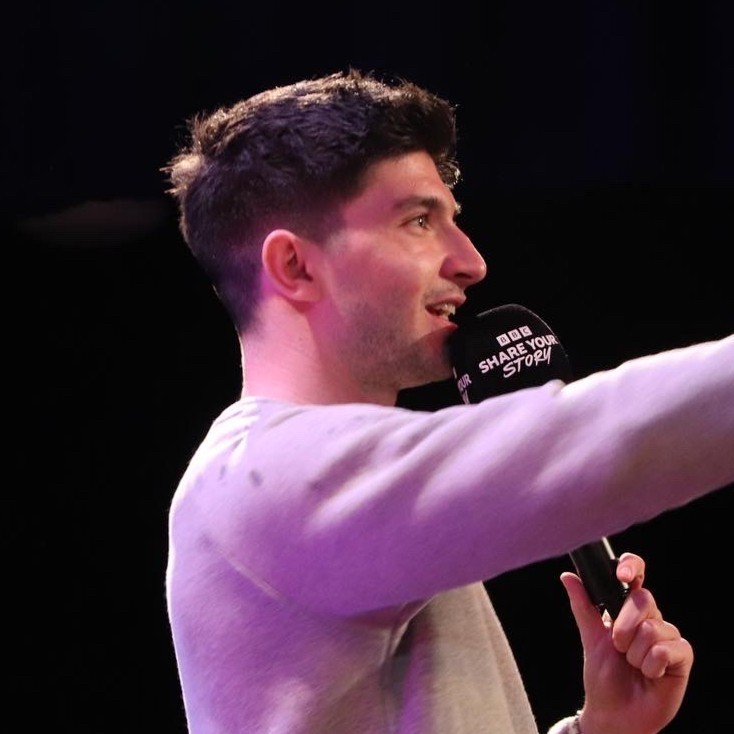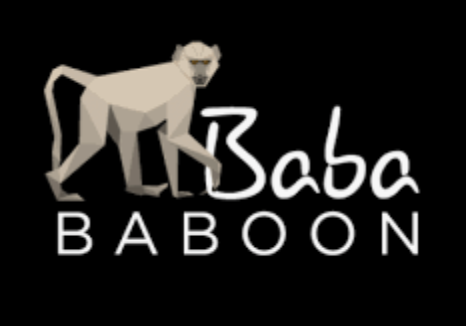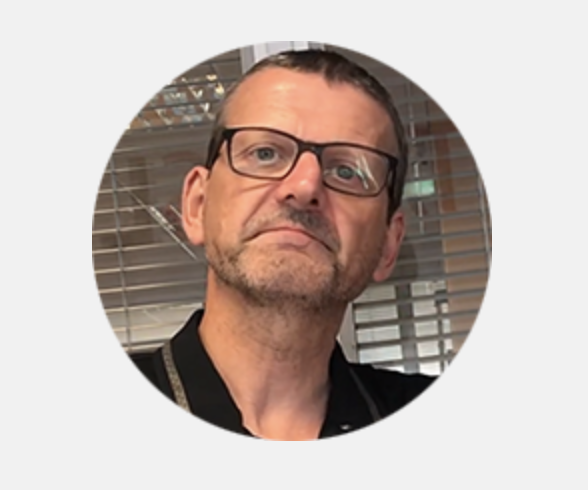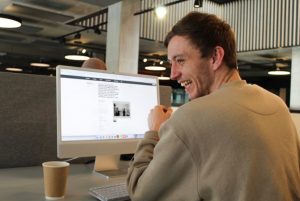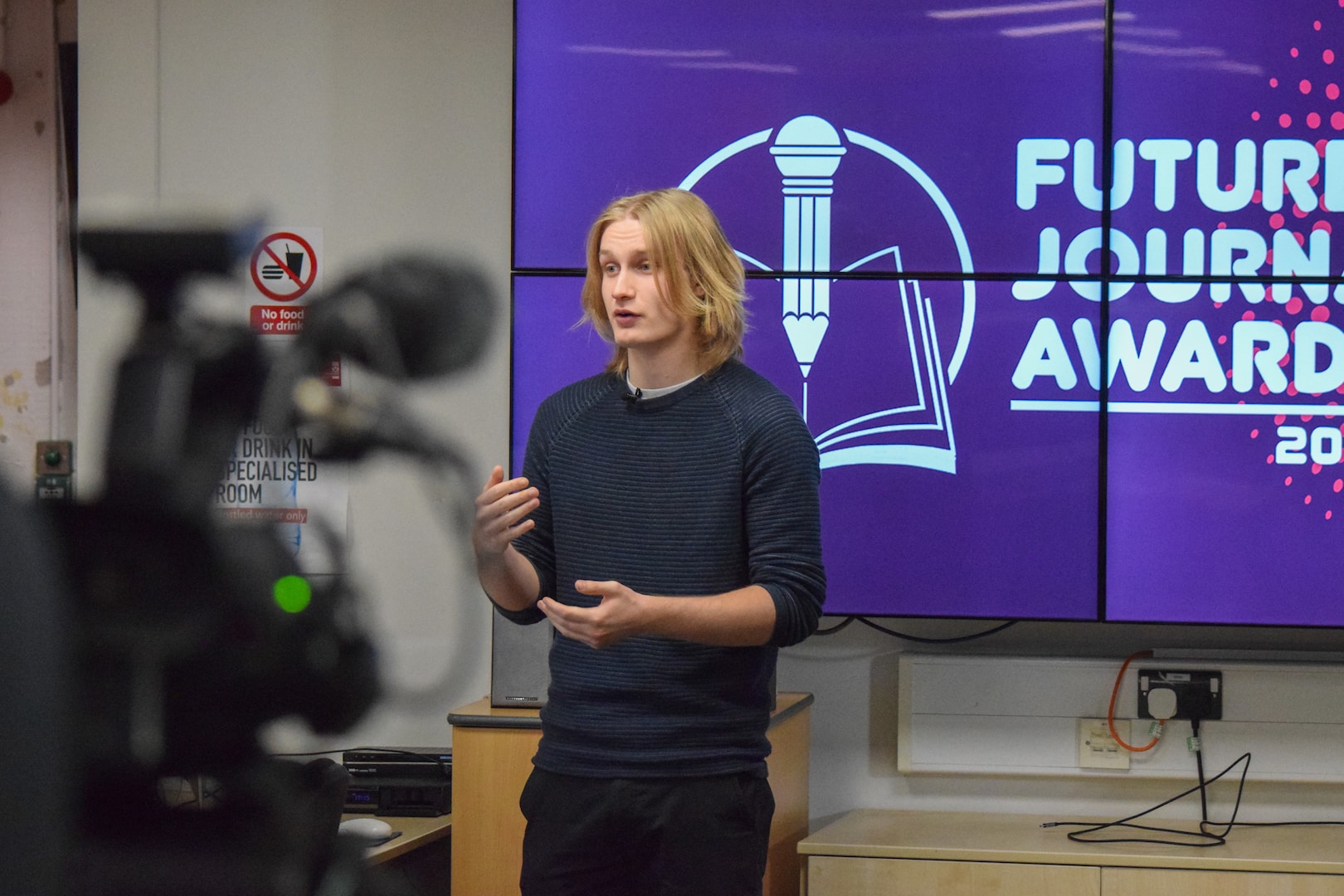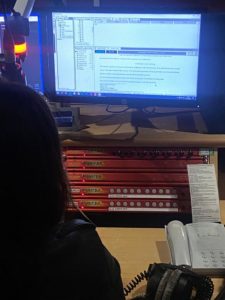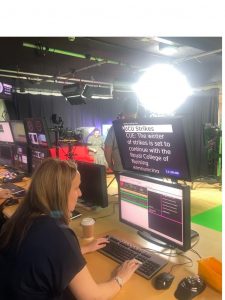An annual competition which aims to discover the next generation of journalists has launched at Staffordshire University.
The Future Journalist Awards, which is organised by third-year Sports Journalism and Journalism and Digital Media students, is open to young people aged seven to 18.
To enter, applicants need to write an article, review, or blog, or can choose to create a short video or audio clip on a smartphone.
The launch event was held in the journalism department’s newsroom and was attended by teachers from schools across Staffordshire. Attendees were given a hands-on tour of the broadcast newsroom and fully-equipped radio studio, giving them the opportunity to use professional standard equipment.
Lucy Nagington, teacher at Packmoor Ormiston Academy in Stoke-on-Trent, attended the launch event. She said: “It was fun to use the equipment, both behind and in front of the camera. It was a great insight into what our pupils will have access to if they decide to study journalism.
“The fact that our pupils can choose their own topic and format for their entries makes the awards really accessible.”
Teachers wanting to encourage their students to enter the awards can book a workshop, either at their school or college.
For the first time, there is also an option to book a workshop to be held at Staffordshire University, giving young learners the opportunity to experience the broadcast newsroom and radio studio first-hand.
Matt Smith, sports broadcaster and journalism lecturer at Staffordshire University, said: “The aim of the competition is to inspire young people to consider a career in journalism.
“My advice is to get involved, think about what you are interested in or what your hobbies are, and find a way to communicate your story, by writing an article, or creating a video or audio clip.
“We are all aware of the world around us, and most people use social media, which means that we are involved in communication and that is where journalism starts and ends.”
Deadline for the competition is March 1 and full details on how to enter can be found on the competition website: www.blogs.staffs.ac.uk/futurejournalist/. For more information, or to book a workshop, email futurejournalist@staffs.ac.uk.
All finalists from each of the five age categories will be invited to a special award ceremony to take place on March 28 at Staffordshire University’s Catalyst Building.
There will be three winners per category: best written content, best video, and best audio. Each will win a £50 Amazon voucher and be invited to attend a Newsday Experience at the University.
About the Future Journalist Awards:
The awards are split into five year group categories, each with age-appropriate guidelines.
Years 3-4: 250-words or 30-seconds audio/video
Years 5-6: 350-words or 45-seconds audio/video
Year 7-9: 450-words or 60-seconds audio/video
Year 10-11: 550-words or 1-minute 15-seconds audio/video
Year 12-13: 650-words or 1-minute 30-seconds audio/video
For more info, visit http://www.blogs.staffs.ac.uk/futurejournalist/

